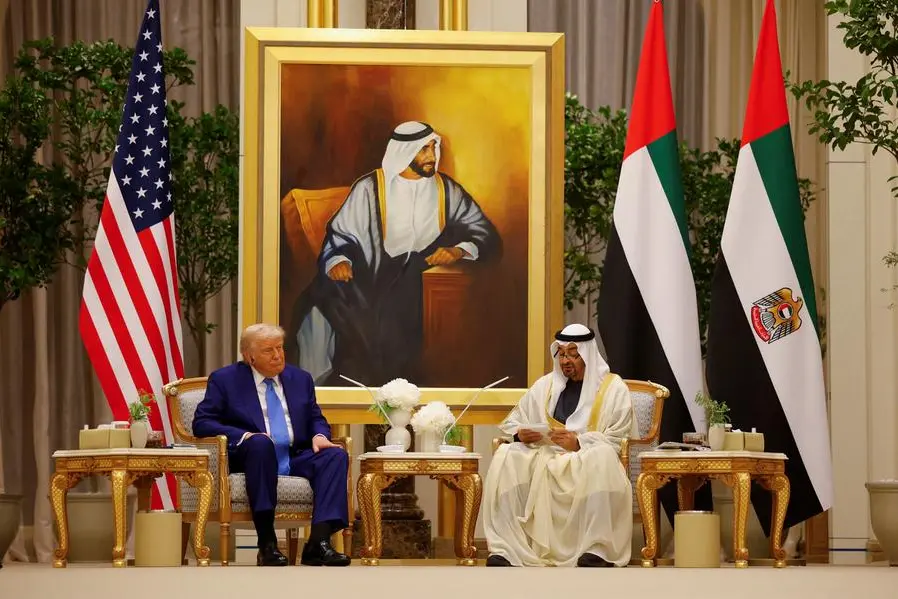September 22, 2025
US President Donald Trump announced more than $200 billion in US-UAE business deals, including Etihad Airways’ order for 28 Boeing jets, strengthening bilateral economic ties.

In a landmark announcement during his 2025 visit to the United Arab Emirates, US President Donald Trump confirmed that the United States and UAE have signed over $200 billion in business deals spanning multiple sectors, reinforcing economic and strategic cooperation between the two nations. Among the headline agreements, Etihad Airways placed an order for 28 Boeing aircraft, representing one of the largest commercial aviation deals in the region in recent years.
The deals encompass a wide array of industries, including aviation, energy, technology, infrastructure, and defense, highlighting the UAE’s commitment to fostering closer ties with the US and diversifying its economy beyond oil. These agreements are expected to generate thousands of jobs, stimulate investment, and facilitate technology transfer between American and Emirati firms.
Etihad Airways Boeing Order The centerpiece of the announcement was Etihad’s purchase of 28 Boeing aircraft, a mix of long-haul and mid-size models. This acquisition is intended to modernize the airline’s fleet, enhance operational efficiency, and expand international routes. Boeing officials praised the deal as a testament to the UAE’s status as a regional aviation hub and its commitment to world-class passenger services. Analysts suggest that the new fleet will also strengthen competition with other Middle Eastern carriers and boost the UAE’s tourism and business travel sectors.
Economic and Strategic Implications The $200 billion in agreements spans sectors crucial to both nations’ economic strategies. US companies are expected to benefit from new market access, long-term contracts, and joint ventures, while UAE firms gain exposure to cutting-edge technology, expertise, and investment capital. The deals also reflect a strategic alignment, promoting stability and collaboration in key global industries, including energy security, artificial intelligence, and aerospace.
Energy and Technology Collaboration Several agreements involve energy sector investments, particularly in renewable energy, infrastructure, and technology-driven solutions. The UAE is prioritizing clean energy and sustainable infrastructure, aligning with global climate objectives. Joint technology projects, especially in AI, cybersecurity, and advanced manufacturing, are expected to foster innovation and long-term collaboration between the US and UAE.
Defense and Security Cooperation Some of the deals include defense contracts, equipment procurement, and collaborative training programs. While not all details are public, the agreements reinforce mutual security interests and enhance interoperability between US and UAE forces, supporting regional stability.
Political and Diplomatic Significance The announcement underscores the UAE’s growing role as a strategic economic partner of the United States. Hosting high-level diplomatic engagements alongside major business agreements demonstrates the UAE’s commitment to international investment, regional leadership, and global economic integration. The deals also highlight the US administration’s focus on strengthening trade partnerships and encouraging American companies to expand internationally.
Broader Market Impact Financial analysts predict that the deals will have ripple effects across global markets, especially in aviation, energy, and technology. The Etihad Boeing order alone will influence aircraft production, supply chains, and employment in the aerospace sector. Other sectors targeted in the agreements are expected to benefit from increased capital inflows, partnerships, and innovation initiatives.
Conclusion The announcement of over $200 billion in US-UAE deals, coupled with Etihad Airways’ 28-jet Boeing order, marks a milestone in bilateral relations, economic collaboration, and strategic alignment. By fostering investment, modernizing infrastructure, and promoting technology transfer, these agreements strengthen both nations’ positions on the global stage. Analysts note that such large-scale partnerships not only benefit businesses and governments but also create long-term employment opportunities, enhance competitiveness, and drive innovation across multiple industries.